
Paros: The Hidden Gem of the Cyclades
Paros, nestled in the heart of the Cyclades, is a serene island that offers a perfect blend of traditional charm and modern comforts. Known for its stunning beaches, picturesque villages, and vibrant nightlife, Paros is an ideal destination for travelers seeking both relaxation and adventure. Start your journey in Parikia, the island's capital, where you can explore the charming old town with its narrow streets, whitewashed houses, and beautiful churches. Don't miss the famous Panagia Ekatontapiliani, a historic Byzantine church dating back to the 4th century. Parikia also offers a busy port area with plenty of cafes, bars, and restaurants where you can savor local delicacies. Head to Naoussa, a picturesque fishing village on the northern coast, for a taste of authentic Greek culture. Here, you can wander through the bustling marina, enjoy fresh seafood at waterfront tavernas, and shop for unique souvenirs in boutique stores. Naoussa is also known for its lively nightlife, with numerous bars and clubs open until the early hours. For beach lovers, Paros boasts some of the most beautiful beaches in the Cyclades. Golden Beach and Santa Maria are perfect for water sports enthusiasts, while Kolymbithres offers unique rock formations and crystal-clear waters ideal for swimming and sunbathing. If you prefer a quieter spot, make your way to Faragas or Monastiri beaches for a more serene experience. Paros is also a great base for exploring nearby islands. Take a short ferry ride to Antiparos, a smaller island known for its stunning caves and relaxed atmosphere. You can also visit Naxos, Mykonos, and Santorini, each offering their own unique attractions and experiences. Throughout your stay, you'll be enchanted by the island's warm hospitality, delicious cuisine, and breathtaking landscapes. Paros truly has something for everyone, making it a must-visit destination in Greece.
Local tips in Paros
- Visit Paros during the shoulder seasons (May-June or September-October) for fewer crowds and milder weather.
- Rent a scooter or ATV to explore the island at your own pace and reach more secluded spots.
- Try the local specialty, 'revithada' (slow-cooked chickpeas), at a traditional taverna.
- Attend the local festivals, especially the Paros Jazz Festival in July and the Paros Festival in August, for a cultural experience.
- Book your ferry tickets in advance during the high season to ensure availability and better prices.
Paros: The Hidden Gem of the Cyclades
Paros, nestled in the heart of the Cyclades, is a serene island that offers a perfect blend of traditional charm and modern comforts. Known for its stunning beaches, picturesque villages, and vibrant nightlife, Paros is an ideal destination for travelers seeking both relaxation and adventure. Start your journey in Parikia, the island's capital, where you can explore the charming old town with its narrow streets, whitewashed houses, and beautiful churches. Don't miss the famous Panagia Ekatontapiliani, a historic Byzantine church dating back to the 4th century. Parikia also offers a busy port area with plenty of cafes, bars, and restaurants where you can savor local delicacies. Head to Naoussa, a picturesque fishing village on the northern coast, for a taste of authentic Greek culture. Here, you can wander through the bustling marina, enjoy fresh seafood at waterfront tavernas, and shop for unique souvenirs in boutique stores. Naoussa is also known for its lively nightlife, with numerous bars and clubs open until the early hours. For beach lovers, Paros boasts some of the most beautiful beaches in the Cyclades. Golden Beach and Santa Maria are perfect for water sports enthusiasts, while Kolymbithres offers unique rock formations and crystal-clear waters ideal for swimming and sunbathing. If you prefer a quieter spot, make your way to Faragas or Monastiri beaches for a more serene experience. Paros is also a great base for exploring nearby islands. Take a short ferry ride to Antiparos, a smaller island known for its stunning caves and relaxed atmosphere. You can also visit Naxos, Mykonos, and Santorini, each offering their own unique attractions and experiences. Throughout your stay, you'll be enchanted by the island's warm hospitality, delicious cuisine, and breathtaking landscapes. Paros truly has something for everyone, making it a must-visit destination in Greece.
When is the best time to go to Paros?
Iconic landmarks you can’t miss
Frankish Castle Paroikia
Explore the Frankish Castle in Paroikia, a historic fortress with stunning views, built with ancient temple ruins, showcasing Paros's rich past.

Archaeological Museum of Paros
Discover ancient sculptures, pottery, and historical inscriptions at the Archaeological Museum of Paros, showcasing the island's rich heritage.
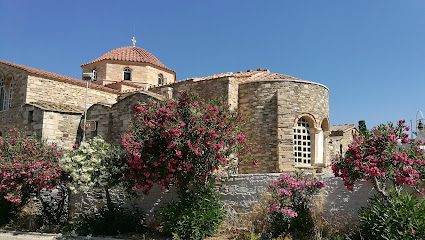
Ancient Marble Quarries
Discover the source of Parian marble, used in ancient masterpieces, at these historic quarries on the enchanting island of Paros.
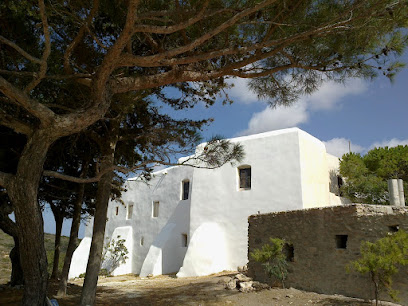
Venetian Castle
Explore the historic Venetian Castle in Naousa, Paros: a scenic landmark with stunning views and a glimpse into the island's past.
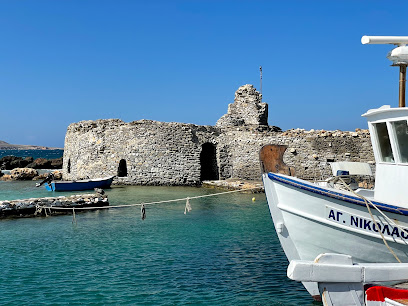
Agios Fokas
Discover Agios Fokas, a serene Cycladic church in Paros offering stunning Aegean views and a peaceful escape near popular beaches.

Mycenaean Acropolis (Koukounaries)
Explore the ancient Mycenaean Acropolis at Koukounaries, Paros: where history meets stunning Aegean views.
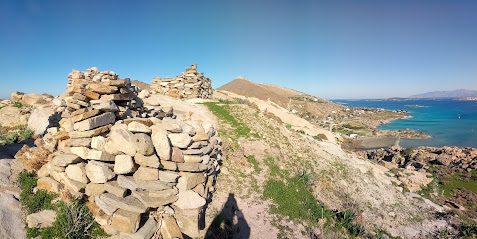
Ancient Cemetery
Explore ancient burial traditions at Paros' Ancient Cemetery, an archaeological park with tombs dating from the 8th century BC to the 3rd century AD.
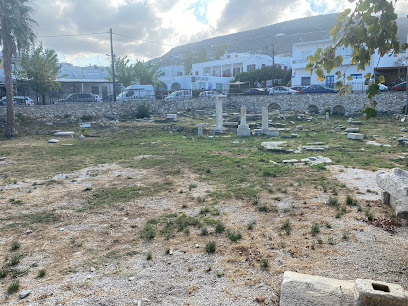
Puit de Paros
Explore the historic Puit de Paros in Kalliera, a serene landmark showcasing the island's rich cultural heritage and natural beauty.

Sanctuary of Apollo
Discover the ancient Sanctuary of Apollo on Paros: a historic site with stunning views and a glimpse into Greek mythology.

Hellenistic Sculpture Workshop
Explore an ancient sculpture workshop on Paros, revealing the artistry and craftsmanship of the Hellenistic period.

Unmissable attractions to see
Holy Shrine of the Virgin Mary Ekatontapyliani
Discover the serene beauty and spiritual significance of the Holy Shrine of the Virgin Mary Ekatontapyliani, a must-visit landmark on the island of Paros.
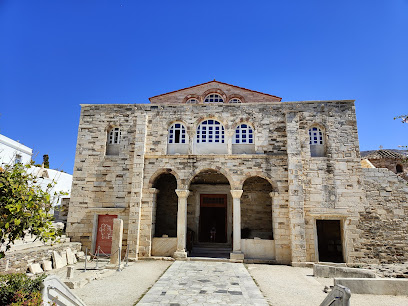
Paralia Milopotas
Experience the stunning beauty and vibrant atmosphere of Paralia Milopotas, Ios' premier beach destination, perfect for relaxation and adventure.
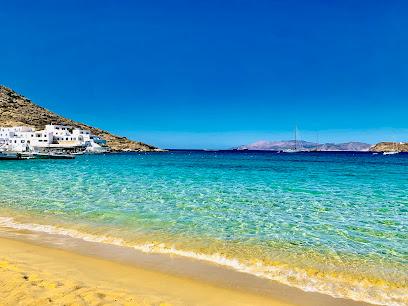
Nosotros Mykonos
Discover the perfect blend of exquisite cuisine and vibrant nightlife at Nosotros Mykonos, the culinary gem of Agios Stefanos.
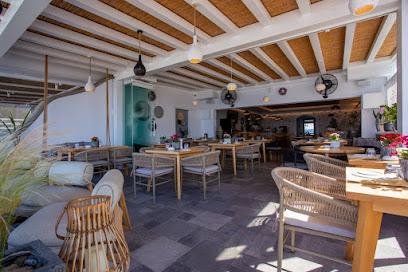
Lageri Beach
Experience the breathtaking beauty of Lageri Beach in Paros, Greece, where stunning landscapes meet crystal-clear waters for the ultimate relaxation.
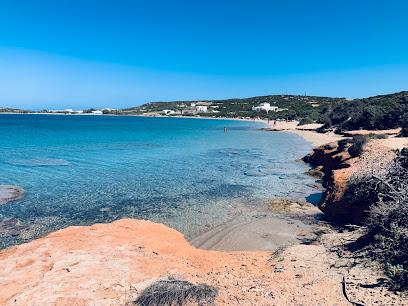
Archaeological Museum of Paros
Explore the rich history of Paros at the Archaeological Museum, where ancient artifacts unveil the island's fascinating past.
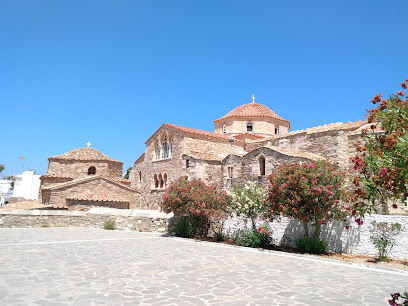
Moraitis Estate
Experience the rich flavors of Greek wines at Moraitis Estate in Naousa, a must-visit winery for every traveler.
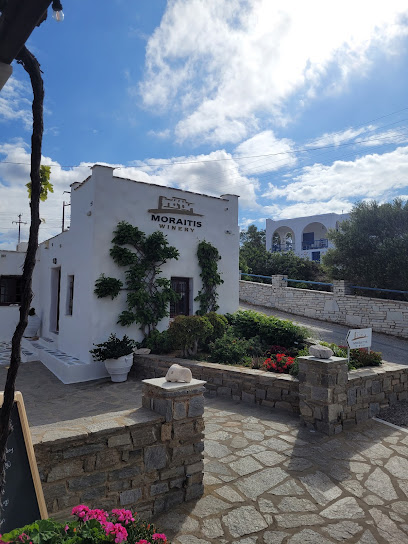
Agios Sostis beach
Discover the serene beauty of Agios Sostis Beach in Tinos: a perfect spot for relaxation, swimming, and enjoying stunning natural landscapes.
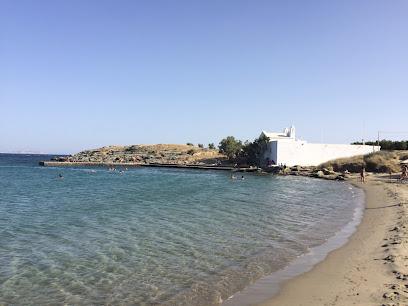
Ancient Marble Quarries
Uncover the rich history and stunning beauty of the Ancient Marble Quarries in Paros, a must-visit destination for history and nature lovers alike.
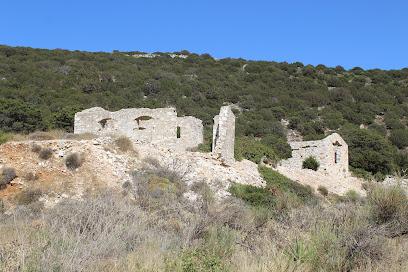
Tower of Ayia
Discover the Tower of Ayia in Naxos, a historical landmark offering breathtaking views and a glimpse into the rich heritage of the Cycladic islands.
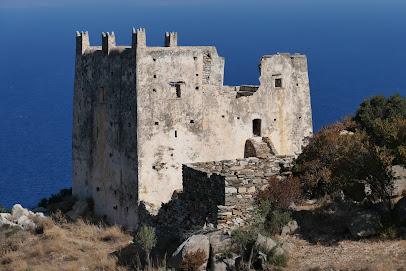
Monastery of Fotodoti
Experience the tranquility and spiritual heritage of the Monastery of Fotodoti in Drimalia, a hidden gem in Greece's stunning landscapes.
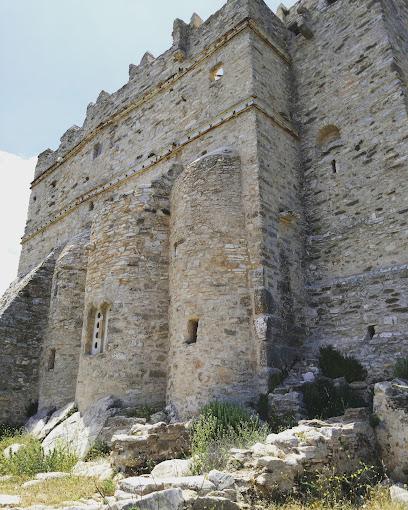
Windmill in port
Experience the beauty and history of the Windmill in Paros, a must-visit landmark offering stunning views and a glimpse into Greek heritage.
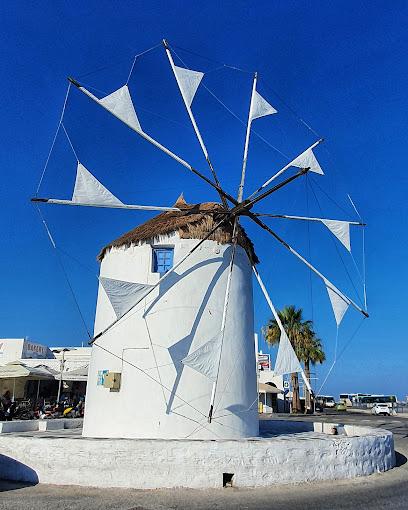
Agios Fokas
Explore Agios Fokas, a serene Greek Orthodox church in Paros, offering stunning views, rich history, and a peaceful atmosphere for every traveler.
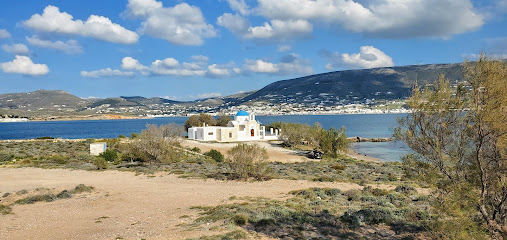
Monastery of St. John's of Deti
Explore the Monastery of St. John's of Deti in Paros, a tranquil retreat rich in history and stunning natural beauty.
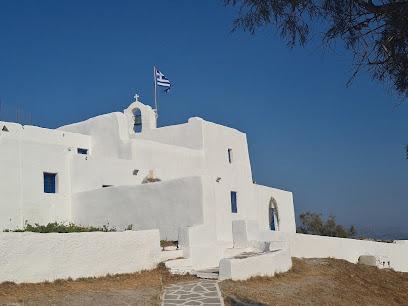
Tourkou Ammos Beach
Experience the serene beauty of Tourkou Ammos Beach on Paros, where golden sands meet crystal-clear waters for a perfect escape.
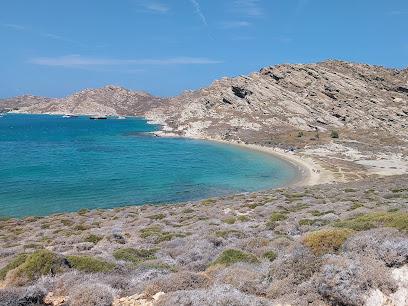
Mycenaean Acropolis (Koukounaries)
Explore the Mycenaean Acropolis at Koukounaries, where ancient history meets breathtaking views on the beautiful island of Paros.

Essential places to dine
MIRA RESTAURANT
Experience authentic Greek cuisine at Mira Restaurant in Paros—where stunning beachfront views meet delicious traditional dishes.
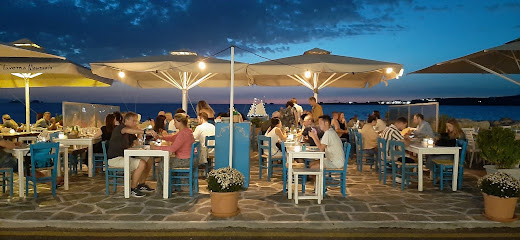
Ouzeri Apostolis
Experience authentic Greek flavors at Ouzeri Apostolis in Paros – where tradition meets taste in a vibrant setting.

Restaurant AROMAS
Experience genuine Greek cuisine at Restaurant AROMAS in Paros – where tradition meets taste in a charming atmosphere.
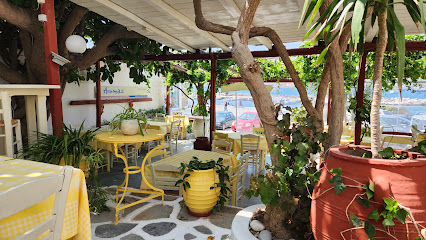
Cuore Rosso
Experience authentic Italian flavors at Cuore Rosso in Paros - where every pizza is crafted with passion and tradition.
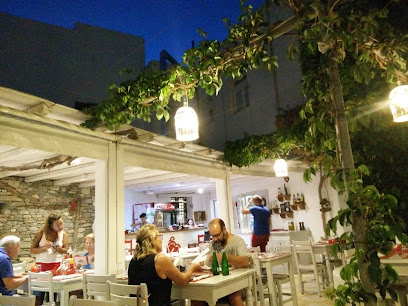
Taverna Alexandros
Experience authentic Greek cuisine with breathtaking sunset views at Taverna Alexandros in Paros.
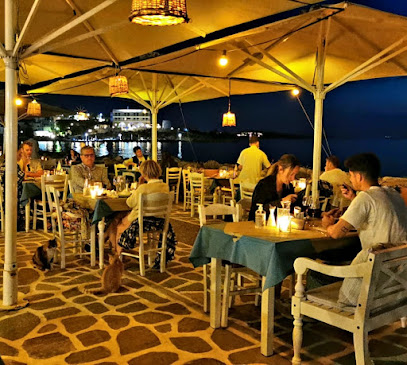
Arodo
Experience authentic Mediterranean cuisine at Arodo in Paros – where fresh seafood meets traditional Greek hospitality.
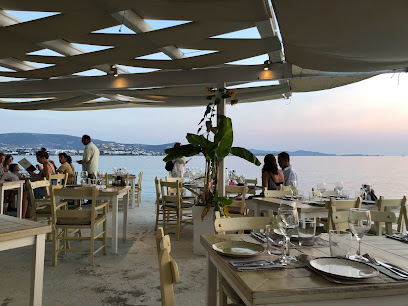
Mango Restaurant, Paros
Discover authentic Italian cuisine at Mango Restaurant in Logaras, Paros – where every meal is a celebration of taste and tradition.
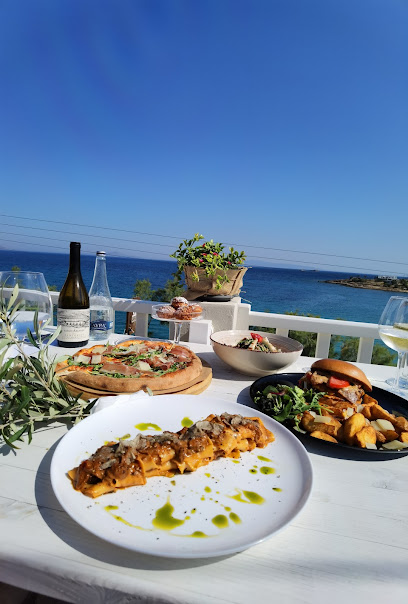
Daverona
Experience exquisite modern Greek cuisine at Daverona in Paros - where tradition meets innovation in every bite.
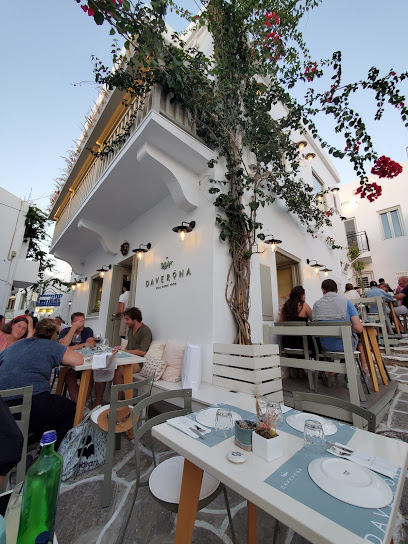
Hellas
Discover the heart of Greece at Hellas Restaurant in Paros - where authentic flavors meet warm hospitality.
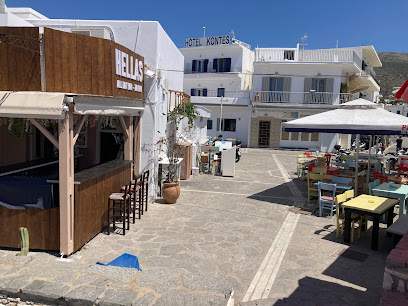
Parea Cuisine Paros
Discover Parea Cuisine Paros - where traditional Greek flavors meet innovative culinary artistry in a cozy setting.

DIONYSOS Garden Restaurant
Discover authentic Greek flavors in a beautiful garden setting at Dionysos Garden Restaurant in Parikia, Paros.

Oasis All Day Restaurant Cafe
Discover the delightful flavors of Italy at Oasis All Day Restaurant Cafe in Paros – where every meal is an experience!
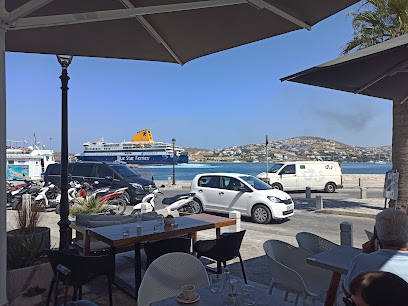
Tomortari family-Restaurant/local cuisine
Experience authentic Greek flavors at Tomortari family restaurant in Paros - where every meal is a celebration of local cuisine and warm hospitality.
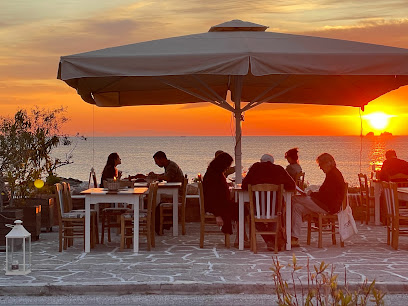
Open Garden Restaurant
Experience authentic Greek flavors in a tranquil garden setting at Open Garden Restaurant in Naousa.

Chaniotis Restaurant
Discover authentic Greek flavors at Chaniotis Restaurant in Paros' vibrant Manto Mavrogenous Square.
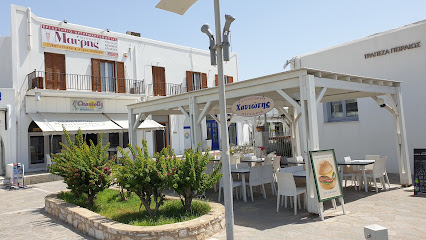
Markets, malls and hidden boutiques
Handmade With Love In Paros
Explore unique handmade fashion accessories in Naoussa, Paros, and take home a piece of Greek craftsmanship that tells a story.
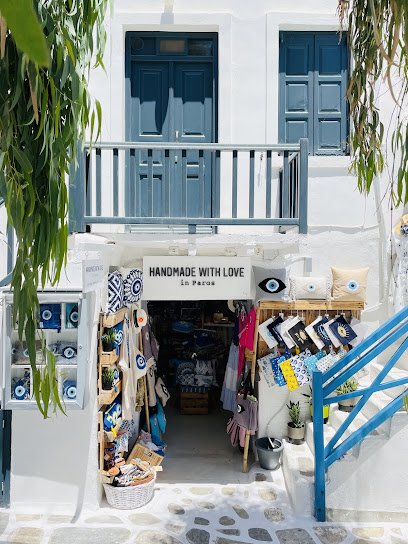
Melissa
Discover a unique blend of music, fashion, and gifts at Melissa in Parikia, Paros – a must-visit for every traveler seeking local charm.
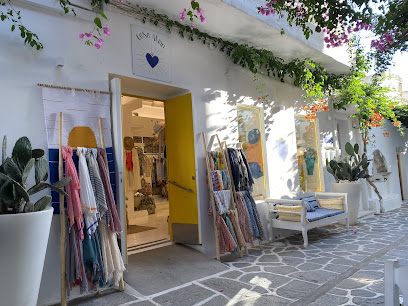
Sparkle boutique IN PAROS
Uncover unique fashion finds at Sparkle Boutique in Paros, where style meets local charm in a perfect blend of elegance and island spirit.

mina's closet
Discover the unique fashion of Paros at Mina's Closet, where trendy clothing meets traditional Greek charm.

Pragmata Concept Store
Explore the heart of Paros at Pragmata Concept Store, your go-to destination for unique local art, fashion, and handcrafted gifts.

SUN.SET
Explore SUN.SET in Naoussa for the latest in beach fashion, swimwear, and accessories, capturing the essence of Paros Island style.

Happy Butterfly
Explore Happy Butterfly in Paros, a gift shop filled with local crafts, unique souvenirs, and treasures that embody the spirit of the Cyclades.
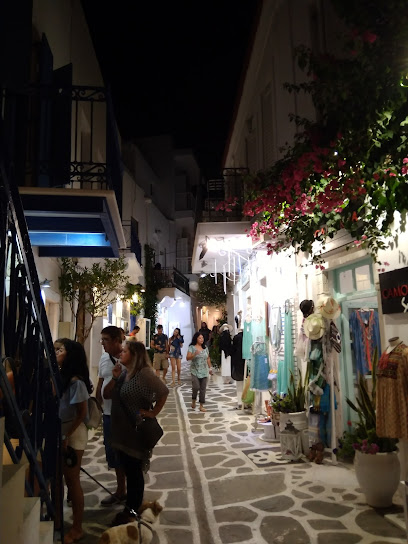
Damay Paros
Explore the enchanting Damay Paros gift shop in Parikia for unique souvenirs and locally crafted treasures that embody the spirit of the Cyclades.

BACK TO SHIP!!!!!!Paros Souvenirs
Discover the charm of Paros through unique gifts and souvenirs at Back to Ship! Paros Souvenirs, a must-visit shop in the heart of the island.
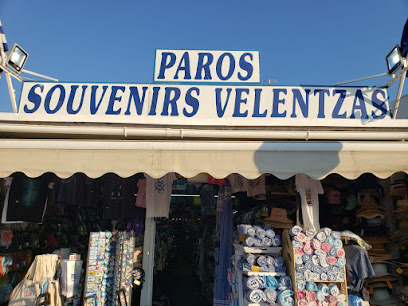
ONEIPA Concept Store
Explore the artistic essence of Lefkes at ONEIPA Concept Store, where unique interior decor and exceptional gifts await every traveler.
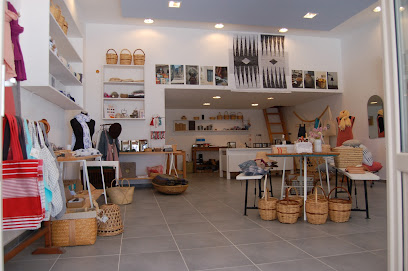
YOU & ISLAND
Explore YOU & ISLAND for unique souvenirs and gifts that embody the spirit of Paros, a perfect reminder of your travels.
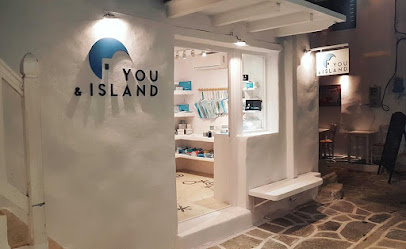
ON AURA TOUT VU
Explore ON AURA TOUT VU in Naousa for one-of-a-kind fashion accessories, stylish clothing, and handcrafted jewelry in the heart of Paros.

Robini Paros
Robini Paros: Your destination for unique men's fashion and exceptional gifts on the beautiful island of Paros.
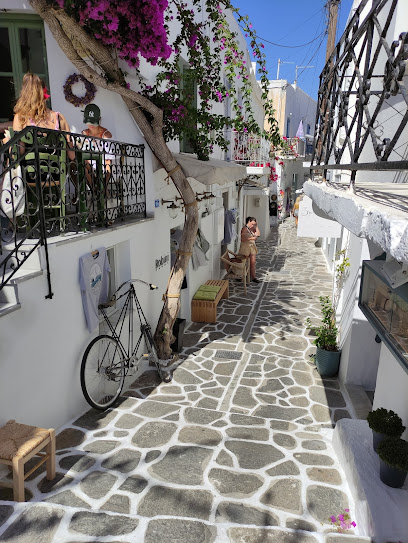
bizarre boutique Paroikia
Discover unique dresses at Bizarre Boutique in Paroikia, where Greek style meets contemporary fashion in a charming setting.
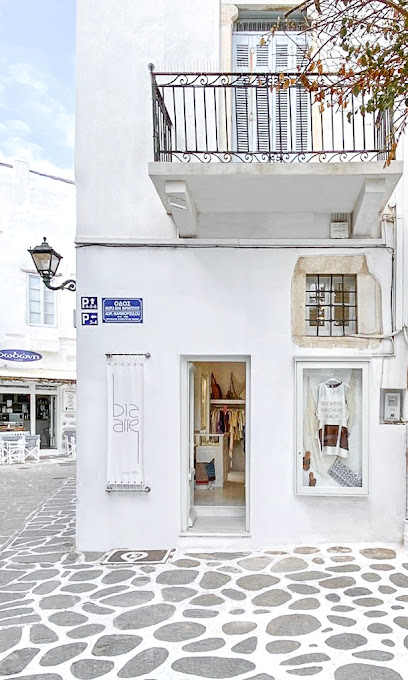
MOODS OF PAROS
Explore the unique antiques and home decor at Moods of Paros, where every piece tells a story of Greek heritage and craftsmanship.
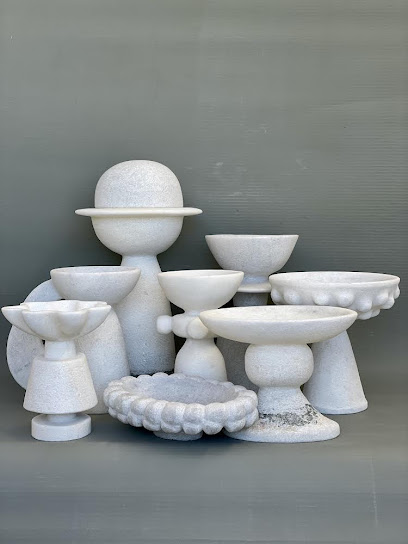
Essential bars & hidden hideouts
Sante Cocktail Bar
Experience the vibrant nightlife at Sante Cocktail Bar in Naousa, where unique cocktails and live music create unforgettable memories.

Sommaripa Consolato Paros
Experience the vibrant nightlife of Naousa at Sommaripa Consolato Paros, where delicious drinks meet stunning coastal views.

CABANA Beach Bar Restaurant
Experience the ultimate beachside relaxation at CABANA Beach Bar Restaurant, where unique cocktails and delicious cuisine meet stunning sea views in Paros.

Bebop
Experience the vibrant nightlife and delicious cuisine at Bebop, the go-to bar and restaurant in the heart of Paros.
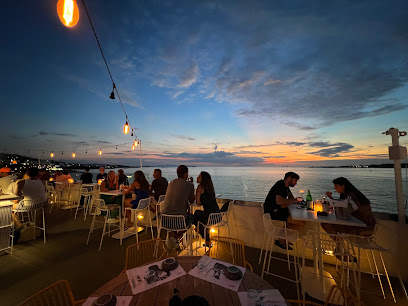
Agosta
Experience vibrant nightlife at Agosta in Naousa, where stunning views and delicious cocktails come together for an unforgettable evening.

Evinos
Experience the vibrant nightlife of Paros at Evinos, where delicious cocktails and great music create unforgettable memories.
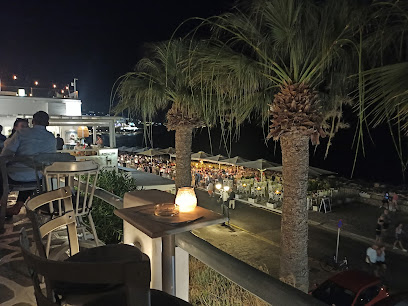
Fotis All Day Bar
Discover the delightful flavors and vibrant ambiance at Fotis All Day Bar, a must-visit spot in Naousa, Greece for food and drink lovers.
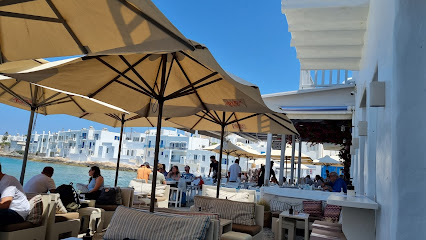
Secret Cafe Bar
Experience the best of Paros at Secret Cafe Bar, where delightful breakfasts and exquisite cocktails come together in a vibrant atmosphere.
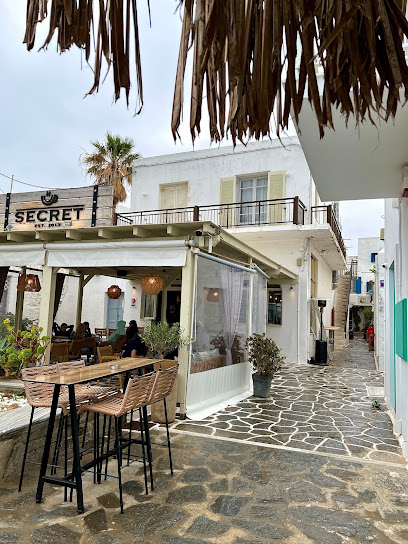
Pirate Bar
Discover the lively atmosphere and unique cocktails at Pirate Bar in Agia Triada, a must-visit nightlife destination in Paros.
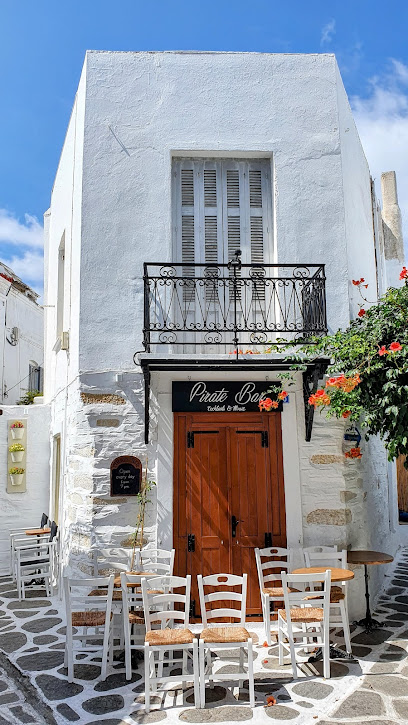
Kialoa bar
Experience the vibrant nightlife at Kialoa Bar in Paros, where signature cocktails and a lively atmosphere await every night.
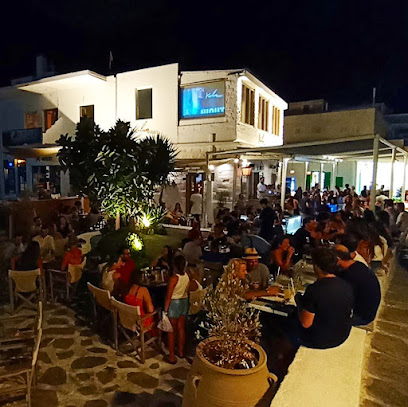
Kosmos Cocktail Bar
Discover Kosmos Cocktail Bar in Naousa, where unique cocktails and vibrant atmosphere come together for an unforgettable nightlife experience.

Nemobar
Discover the vibrant atmosphere of Nemobar on Paralia Seafront, where refreshing drinks and local delicacies meet stunning Aegean views.
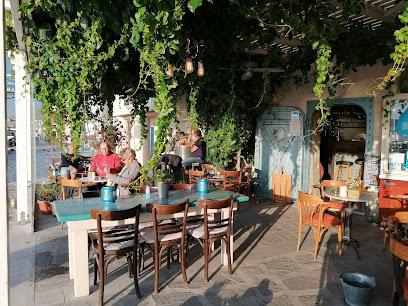
Medusa Cocktail Bar Paros
Discover Medusa Cocktail Bar in Naousa, Paros - where exceptional cocktails meet a vibrant island atmosphere for an unforgettable night.

The Jolly Roger pub Paroikia
Experience Greek hospitality and vibrant nightlife at The Jolly Roger Pub in Paroikia, where delicious food meets live entertainment.
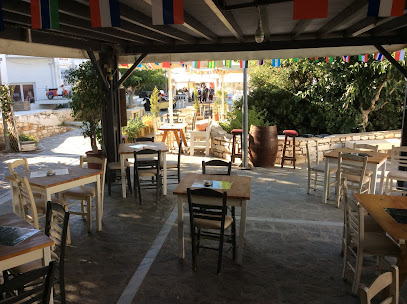
Local Phrases about Paros
-
- HelloΓεια σας
[Ya sas] - GoodbyeΑντίο
[Adio] - YesΝαι
[Ne] - NoΌχι
[Ochi] - Please/You're welcomeΠαρακαλώ
[Parakalo] - Thank youΕυχαριστώ
[Efharisto] - Excuse me/SorryΣυγνώμη
[Signomi] - How are you?Πώς είσαι;
[Pos ise;] - Fine. And you?Καλά. Εσύ;
[Kala. Esi;] - Do you speak English?Μιλάς Αγγλικά;
[Milas Agglika;] - I don't understandΔεν καταλαβαίνω
[Den katalaveno]
- HelloΓεια σας
-
- I'd like to see the menu, pleaseΘα ήθελα να δω το μενού, παρακαλώ
[Tha ithela na do to menu, parakalo] - I don't eat meatΔεν τρώω κρέας
[Den troo kreas] - Cheers!Στην υγεία μας!
[Stin igia mas!] - I would like to pay, pleaseΘα ήθελα να πληρώσω, παρακαλώ
[Tha ithela na plirosso, parakalo]
- I'd like to see the menu, pleaseΘα ήθελα να δω το μενού, παρακαλώ
-
- Help!Βοήθεια!
[Voithia!] - Go away!Φύγε!
[Fiye!] - Call the Police!Καλέστε την Αστυνομία!
[Kaleste tin Astynomia!] - Call a doctor!Καλέστε έναν γιατρό!
[Kaleste enan giatro!] - I'm lostΈχω χαθεί
[Eho hafi] - I'm illΕίμαι άρρωστος
[Ime arrostos]
- Help!Βοήθεια!
-
- I'd like to buy...Θα ήθελα να αγοράσω...
[Tha ithela na agoraso...] - I'm just lookingΑπλά κοιτάω
[Apla kitao] - How much is it?Πόσο κοστίζει;
[Poso kostizi;] - That's too expensiveΑυτό είναι πολύ ακριβό
[Afto ine poli akribo] - Can you lower the price?Μπορείτε να μειώσετε την τιμή;
[Borite na miosete tin timi;]
- I'd like to buy...Θα ήθελα να αγοράσω...
-
- What time is it?Τι ώρα είναι;
[Ti ora ine;] - It's one o'clockΕίναι μία ώρα
[Ine mia ora] - Half past (10)Μισή (10)
[Misi (dekka)] - MorningΠρωί
[Proi] - AfternoonΑπόγευμα
[Apoyevma] - EveningΒράδυ
[Vradi] - YesterdayΧθες
[Hthes] - TodayΣήμερα
[Simera] - TomorrowΑύριο
[Avrio] - 1Ένα
[Ena] - 2Δύο
[Dyo] - 3Τρία
[Tria] - 4Τέσσερα
[Tessera] - 5Πέντε
[Pente] - 6Έξι
[Exi] - 7Επτά
[Epta] - 8Οκτώ
[Okto] - 9Εννέα
[Ennea] - 10Δέκα
[Deka]
- What time is it?Τι ώρα είναι;
-
- Where's a/the...?Πού είναι ένα/το...;
[Pou ine ena/to...;] - What's the address?Ποια είναι η διεύθυνση;
[Pia ine i diefthinsi;] - Can you show me (on the map)?Μπορείτε να μου δείξετε (στο χάρτη);
[Borite na mou dixete (sto charti);] - When's the next (bus)?Πότε είναι το επόμενο (λεωφορείο);
[Pote ine to epomeno (leoforeio);] - A ticket (to ....)Ένα εισιτήριο (για ....)
[Ena isitirio (gia ....)]
- Where's a/the...?Πού είναι ένα/το...;
History of Paros
-
Paros has been inhabited since the Neolithic period, around 3200 BCE. Archaeological evidence suggests that the island's first inhabitants were likely drawn by its fertile land and abundant resources. The ancient town of Parikia, now the island's capital, became a significant settlement during the Cycladic civilization era. Paros was known for its marble quarries, which produced the famous Parian marble used in notable sculptures like the Venus de Milo and the Nike of Samothrace.
-
During the Classical period, Paros was a prominent player in the Aegean Sea. The island allied with Persia during the Persian Wars, which led to its temporary subjugation by Athens. In 490 BCE, Paros supported the Persian fleet at the Battle of Marathon. Following the Persian defeat, the Athenians imposed a hefty fine on Paros, and the island became a member of the Delian League under Athenian control.
-
Following the decline of Athenian power, Paros came under the influence of the Macedonian Empire during the Hellenistic period. The island experienced a period of prosperity and growth. In 166 BCE, Paros was incorporated into the Roman Empire. Under Roman rule, Paros continued to thrive, largely due to its strategic location and the ongoing demand for its high-quality marble.
-
With the fall of the Western Roman Empire, Paros became part of the Byzantine Empire. The island saw the construction of many Christian monuments, including the iconic Panagia Ekatontapiliani, also known as the Church of 100 Doors, built in the 4th century CE. During the medieval period, Paros was frequently targeted by pirates and experienced fluctuating control between various powers, including the Venetians and the Ottoman Turks.
-
From the 13th century onwards, Paros became part of the Duchy of the Archipelago, a maritime state established by the Venetians. The Venetians fortified the island, and many of their architectural influences remain visible today. In 1537, the Ottomans conquered Paros, and it remained under Ottoman rule until the Greek War of Independence in the early 19th century. During Ottoman rule, Paros was a relatively quiet and rural island, though it occasionally faced pirate raids.
-
Paros played an active role in the Greek War of Independence (1821-1830). The islanders joined the struggle against Ottoman rule, contributing ships and fighters to the cause. Paros was eventually liberated and became part of the newly established Kingdom of Greece. In the modern era, Paros has transformed from a quiet agricultural island to a popular tourist destination, known for its charming villages, beautiful beaches, and rich cultural heritage.
Paros Essentials
-
Paros is accessible via several transportation modes. The nearest international airport is Athens International Airport (ATH). From Athens, you can take a domestic flight to Paros National Airport (PAS), which is approximately 10 kilometers from Parikia, the island's capital. Alternatively, you can take a ferry from the port of Piraeus or Rafina near Athens. Ferries also connect Paros with other Cycladic islands such as Mykonos, Santorini, and Naxos.
-
Paros boasts a well-organized transportation system. Local buses connect the main towns and beaches, and schedules are more frequent during the summer season. Taxis are readily available, but it is advisable to agree on the fare beforehand. Renting a car, motorbike, or bicycle is a popular option for those wanting to explore the island at their own pace. Additionally, boat rentals offer a unique way to visit secluded beaches and neighboring islands.
-
The official currency in Greece is the Euro (€). Credit and debit cards are widely accepted in hotels, restaurants, and shops, but it's advisable to carry some cash, especially when visiting smaller villages or remote areas. ATMs are available in Parikia and Naoussa, as well as other major towns on the island. Currency exchange services can be found in banks and some travel agencies.
-
Paros is generally a safe destination for tourists, with low crime rates. However, standard precautions should still be taken. Avoid carrying large sums of money and keep an eye on your belongings, especially in crowded areas such as markets and during festivals. There are no specific high-crime areas targeting tourists, but it is always best to stay vigilant and aware of your surroundings.
-
In case of emergency, dial 112, the European emergency number, for immediate assistance. Paros has a hospital located in Parikia, and there are several pharmacies throughout the island. It's recommended to have travel insurance that covers medical emergencies. For minor health issues, pharmacists can provide over-the-counter medications and advice.
-
Fashion: Do dress modestly, especially when visiting churches and monasteries. Avoid overly revealing clothing. Religion: Do respect local customs and traditions. Always cover your shoulders and knees when entering religious sites. Public Transport: Do be respectful and give up your seat to elderly passengers. Don’t eat or drink on public transport. Greetings: Do greet people with a warm 'Kalimera' (Good morning) or 'Kalispera' (Good evening). A handshake is also customary. Eating & Drinking: Do try local delicacies and accept food offerings graciously. Don’t refuse hospitality, as it is considered impolite.
-
To experience Paros like a local, visit the traditional villages of Lefkes and Marpissa, where you can stroll along cobbled streets and enjoy the serene atmosphere. Engage with locals, as they are often friendly and willing to share stories about the island's history and culture. Don’t miss the opportunity to attend local festivals, such as the Panagia Ekatontapiliani celebration in August. For a unique experience, explore the Paros Park, which offers hiking trails, open-air cinema, and stunning views of the Aegean Sea.
Nearby Cities to Paros
-
Things To Do in Santorini
-
Things To Do in Pyrgos
-
Things To Do in Athens
-
Things To Do in Samos
-
Things To Do in Kos
-
Things To Do in Heraklion
-
Things To Do in Rethymno
-
Things To Do in Chania
-
Things To Do in Bodrum
-
Things To Do in Kusadasi
-
Things To Do in Crete
-
Things To Do in Nafplio
-
Things To Do in Ephesus
-
Things To Do in Izmir
-
Things To Do in Kalamata













